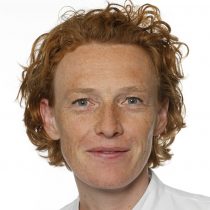Universitätsklinikum Düsseldorf
Area of expertise and Healthcare Provider’s contribution to care for patients within the MetabERN Network
The Center for Inborn Errors of Metabolism and Mitochondrial Diseases in the Department of General Pediatrics of the Heinrich Heine University Düsseldorf has been a designated center for children and adolescents with inborn errors of metabolism (especially disorders of intermediary metabolism, mitochondrial and neurometabolic diseases) for decades. Our interdisciplinary team cares for several hundred patients with a wide variety of diseases. Children of all ages are treated on the wards and in the large outpatient clinic. Our facility has a dedicated neonatal intensive care unit and an intensive care unit for older children. Our multidisciplinary team includes pediatricians, nutritionists, geneticists, psychologists, speech therapists and social workers. Care is provided in close collaboration with other specialists such as neurologists, radiologists, endocrinologists, gastroenterologists, ophthalmologists and orthopedists.
The hospital offers 24/7 emergency care, as well as an on-call staff of the expert team members to ensure the highest standard of care. We support our colleagues outside the hospital by providing diagnostic advice and providing referring clinics with detailed instructions for patient care.
We have access to a wide range of diagnostic methods (from classical biochemical diagnostics from tissue material to next-generation sequencing). For patients whose phenotype is not yet associated with a known genotype, we offer whole genome sequencing.
In research, we are dedicated to decoding molecular mechanisms underlying mitochondrial and neurometabolic disorders. In clinical research, we investigate clinical course and outcome as well as quality of life in rare inborn errors of metabolism.
specific treatments and interventions provided by the HCP
The Center for Inborn Errors of Metabolism and Mitochondrial Diseases Düsseldorf has all the necessary facilities for the diagnosis, emergency and long-term treatment of patients with metabolic and neurometabolic diseases.
- Acute care: 24/7 emergency treatment and specialist on-call service for children with metabolic diseases. Neonatal and pediatric intensive care facilities including dialysis.
- Outpatient services: multidisciplinary outpatient clinics including nutritional counseling and education, interdisciplinary outpatient clinic with the Department of Genetics for diagnostic workup of patients with suspected metabolic or neurometabolic disorders and still unclear diagnosis.
- Psychological care: Acute care after initial diagnosis, ongoing psychological support for patients and their families during the course of the disease
- Social services: Support e.g. with regard to childcare and socio-legal issues
- Transition: transition of patients from pediatric to adult care following a structured transition program.
- Palliative care services: a pediatric palliative care team is available for outpatient care of patients with life-limiting illnesses, not only in the pre final phase.

Universitätsklinikum Düsseldorf
Moorenstraße 5, 40225 Düsseldorf, Germania


